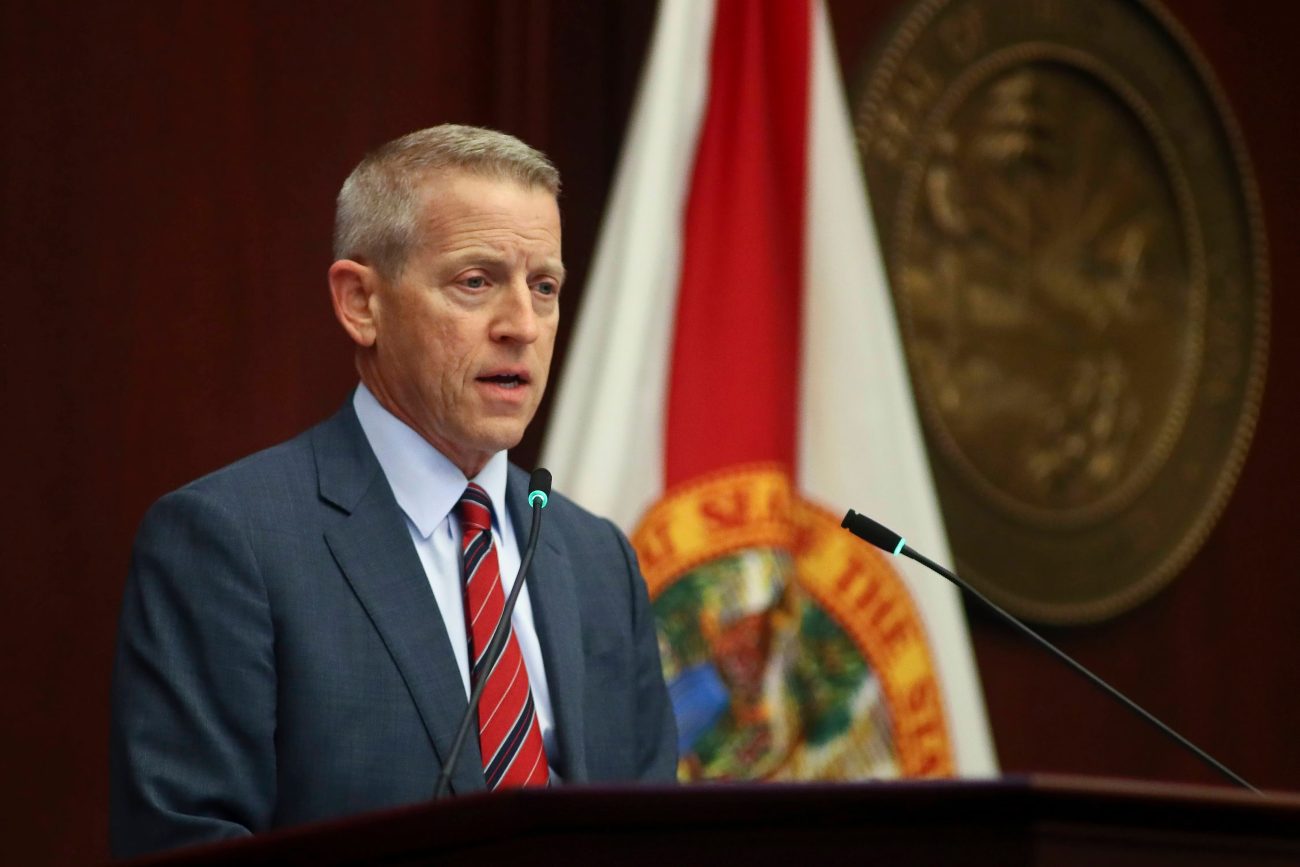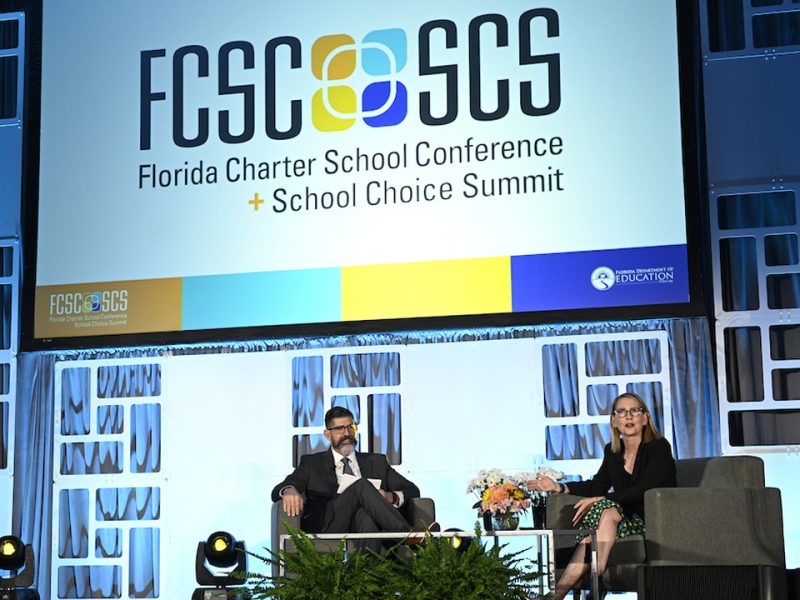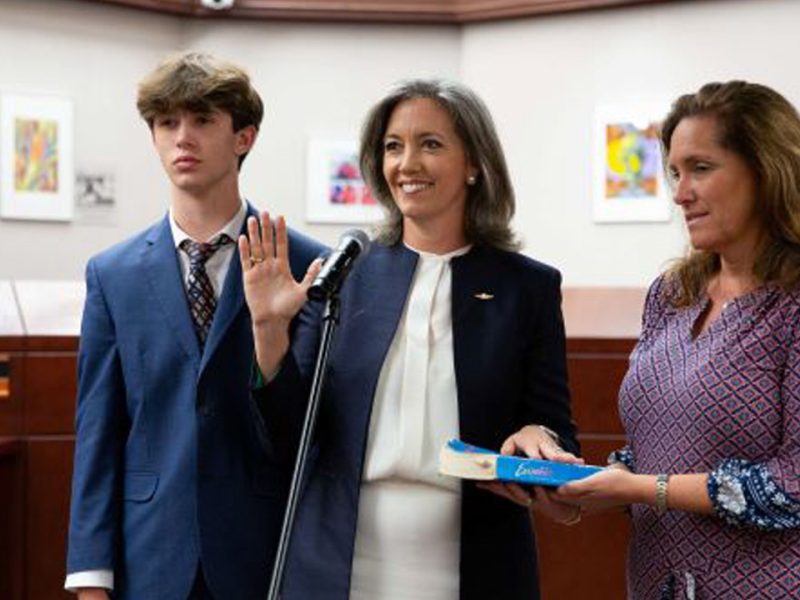Florida House wants to expand school vouchers so all students can get scholarships
South Florida Sun-Sentinel | By Leslie Postal | January 19, 2023
All Florida students would be eligible for state scholarships that could pay for private school or homeschooling services under a new plan that would wipe out family-income requirements and represent the largest expansion of the state’s voucher programs.
The proposal unveiled by the Florida House was touted by Speaker Paul Renner, R-Palm Coast, as a continuation of school choice efforts begun 25 years ago under former Republican Gov. Jeb Bush.
“It’s time to finish the job,” Renner tweeted. “The Florida House is dedicated to expanding choice to every student in Florida.”
The expansion would mean that parents who now homeschool their children or pay private school tuition out of pocket could get state funds to help offset those expenses, an additional cost for the state’s education budget that critics fear would come at the expense of Florida’s public schools.
“That sound you hear is the crumbling of public school walls as the Florida House moves forward on dismantling public schools,” tweeted Sue Woltanski, a member of the Monroe County School Board.
House Democrats said the plan would make “a direct hit on our public schools” by reducing funding and would also put more students in private schools that are exempt from state rules on teacher qualifications, academic standards and testing, among other measures.
“The accountability factor is highly suspect,” said Rep. Yvonne Hayes Hinson, D-Gainesville, a former public school teacher and principal.
Students using Florida’s vouchers to attend private school do not, for example, need to take Florida’s standardized tests, which are required in public school, with passing scores on math and language arts exams needed to earn a high school diploma.
The private schools that take state scholarships are free to teach what they want, with some offering history and science lessons that are outside mainstream academics, such as claims that dinosaurs and humans lived together.
“We don’t need it in the state of Florida,” Hinson said.
Florida private schools that take state vouchers are also free to discriminate against gay students, as the Orlando Sentinel reported in 2020. They also can set up in rundown facilities, get evicted and hire teachers without college degrees and with criminal convictions as the Sentinel has reported previously
More than 252,000 Florida students use the scholarships this school year, according to Step Up For Students, the private group that administers most of the state voucher programs.
If adopted, the legislation (HB 1) filed Thursday would change the Family Empowerment Scholarship so that any student eligible to enroll in public school could be in line for a voucher.
The scholarship is now targeted to children from low-income families and to children with disabilities, the two groups Florida’s voucher programs have long sought to serve. Advocates say the programs help children whose parents think they are not well served in public schools.
The bill says students from low-income families would still get priority for scholarship funding. Renner, speaking at a news conference to announce the legislation, said the House’s first goal when it sets a budget would be to fund scholarships for students with disabilities already on the program’s waitlist.
There are more than 9,300 on that list, according to Step Up.
The scholarship currently pays from $7,250 to $7,850 per student for those on the low-income scholarship. Students with disabilities receive more funding, with those with less severe disabilities getting an average of about $10,000, though the amount varies by county, while those with more significant challenges getting more than $25,000.
Under the bill, parents could use the scholarship money to pay private school tuition or cover a variety of homeschooling expenses, such as the purchase of private tutoring services or online classes.
The bill would essentially create a “universal savings account,” or a pot of money — if sufficient funds were allocated — that any parent could access for their child’s education, as long as the child was not enrolled in public school.
Former Gov. Rick Scott floated the plan soon after he took office, but it was never taken up by the full Florida Legislature.
Now, Renner suggested at least the House was ready to do that with the goal of “making sure every child in Florida reaches their full potential.”
He said the bill promotes “freedom and opportunity” and allows every parent to make the best educational decision for their children.
“We don’t pick winners and losers,” he said when asked if the program might help families already paying for private school.
Renner said he got a “good education” in public schools and expected many parents believe their children are getting the same. “Many people will stay right where they are because they are happy,” he added.
Some homeschooling parents may not want to be involved in a state program, as the new bill would require parents to meet annually with a “choice navigator,” who would review students’ educational records and test scores to help recommend educational options.
Public schools have benefitted from increased state funding in recent years and will see more of the same this year, Renner added, when asked about the potential expense of the expansion.
“It’s going to be a very good year for our traditional public schools as well,” he added.
But Democrats have their doubts.
“This was expected & will negatively impact our public schools who are already struggling to retain & recruit teachers due to issues like teacher pay & politicization of education,” tweeted Rep. Anna Eskamani, D-Orlando, after the bill was filed.






